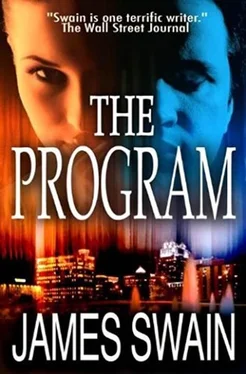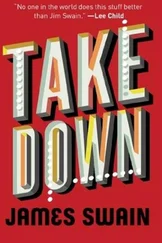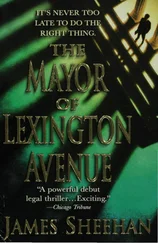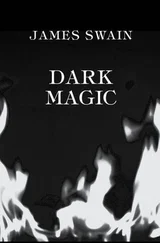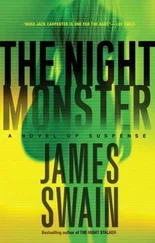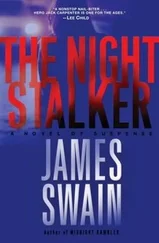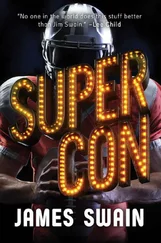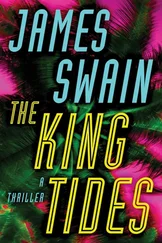“You mean did I go nuts? No, thank God. I eventually got back to normal. Just woke up one morning, and the sky was sunny again.”
“Did you ever imagine yourself killing someone?” Linderman asked.
There was a silence on the line.
“Several times,” Kessler said.
“How?”
“With my hands. Is that happening to you, Ken?”
“Yes. I imagined killing Crutch at the prison.”
“That’s not surprising, considering what he said about your daughter.”
“It was real. I was doing it. Then I snapped back to reality.”
“That’s not good. How many times has this happened?”
If he lied to Kessler, their friendship would suffer because of it. But if he told Kessler the truth, Bob would pick up the phone, and alert someone within the bureau that he was having mental issues.
“Just once,” Linderman lied. “What would you suggest if it happens again?”
“Go see a doctor. You don’t want these fantasies invading your thoughts. They’re extremely dangerous.”
Yes, they are, Linderman thought.
“Thanks for the warning,” Linderman said. “Now, let me tell you why I called. You mentioned yesterday there was evidence that Crutch had murdered his family. Can you give me some specifics?”
“Sure,” Kessler said. “When Crutch was arrested in Melbourne for kidnaping Lucy Moore, he let the police interview him. During the interview, Crutch mentioned his family back in Pittsburgh, and how they hadn’t gotten along when he was growing up. It peaked my curiosity, so I did some digging. I found a distant cousin in Massachusetts who was very helpful.
“The cousin’s name was Horace Perret, if I remember correctly. Ex-military guy. Perret told me that Crutch appeared on his doorstep with a suitcase one day, and asked if he could stay for a while. Crutch claimed that his family had moved to Canada, which was where the mother was originally from. Crutch said that his mother had been angry with him, and left him behind to fend for himself.”
“How old was Crutch?” Linderman asked.
“Crutch was about to enter his junior year in highschool, so that would have made him either sixteen or seventeen. Perret said that Crutch appeared to be handling the separation pretty well, and said several times that it was probably for the better. Perret said that Crutch lived with him for six months, and then went to stay with another relative in Boston, and lived with that relative until he graduated highschool. Crutch was extremely bright, and got accepted to MIT on a full academic scholarship. Perret said he lost touch with Crutch after that, as did other members of the family.”
“What led you to think Crutch murdered his family, and that his story wasn’t true?”
“I did a public records search in Canada for Crutch’s mother. I also contacted the Royal Canadian Mounted Police, and got them to do a search. The woman didn’t exist, and neither did her children.”
“Do you know how many children there were?”
Kessler paused, thinking. “Three besides Crutch.”
“Were they all female?”
“Yes… how did you know?”
“Crutch has been killing his mother and three sisters over and over in the cities where he’s lived. It’s his ritual.”
Kessler said something that sounded like a curse. A rarity for him.
“Why didn’t I see that?” Kessler said, angry with himself.
“You kept him in prison, Bob. That’s more than enough.”
Kessler continued to grumble. This would eat at him for a long time.
“I need to get back to work,” Linderman said. “One last question. Do you have the address for Crutch’s family home in Pittsburgh?”
“It should be in my files. Hold on.”
Kessler was gone for several minutes. Linderman continued to watch the heron catch fish from the pond. Kessler came back on the line.
“Found it. They lived on 712 Morningside Drive in Oakmont, which is an old suburb about twenty minutes from downtown.”
Linderman took a pen from his pocket and wrote the address on the back of a business card. He thanked his old boss for his help.
“Keep me in the loop,” Kessler said. “I want to hear how this plays out.”
Linderman said goodbye and folded his phone. Crutch was a smart killer, and had left no evidence linking him to his heinous crimes. But what about the first time, when he’d killed his mother and sisters? Had he had the presence of mind to clean up after himself then? More than likely, he hadn’t. He needed to catch a flight to Pittsburgh, and pay a visit to the Crutchfield family home. If his hunch was right, there would be enough evidence there to link Crutch to his family’s murders, and make him talk.
He headed back to the building. A shadow passed directly overhead, momentarily eclipsing the sun. It was the heron, its wings flapping furiously.
He glanced over his shoulder in alarm. Four women now occupied the picnic table. He had no idea where they’d come from. Their physical similarities were striking, right down to having identical facial features and the same hair color. Their mouths moved up and down as they chatted happily away.
A teenage boy dressed in blue jeans and a white tee-shirt emerged from behind a tree. It was Crutch. His hair was much fuller, his body lighter. Clutched in his hands was an axe handle which he waved menacingly in the air. He stood at the head of the table, and screamed silently at the women.
The four women ignored him, and continued to chat away.
Crutch moved to hit one of the women, then froze. He looked in Linderman’s direction, the expression on his face a mixture of savagery and pain. Like he could not help himself.
Linderman knew that what he was seeing was not real, yet it did not change his response. He ran toward the picnic table, intent on stopping Crutch.
By the time he reached the table, they were gone.
Routines did not change inside a prison. It was part of the punishment.
At three o’clock, the inmates in Crutch’s cellblock were let outside. For the next hour, they could play basketball, smoke cigarettes, or do nothing.
It was the best part of the day.
Crutch stood eagerly by his cell door. He was filled with stress, and needed to go run around and stretch. He’d read how stress caused cancer and other fatal diseases. He didn’t want to get sick in prison. The care was terrible.
He’d expected to have heard from Linderman by now. Linderman’s unwillingness to accept his deal had surprised him. Didn’t Linderman want to know what had happened to his beloved child? Or was he going to stick to the rules, and not let Crutch get the best of him? Crutch didn’t see him holding out forever. Losing the thing you loved most in the world was never fun. That he knew for a fact.
The fat guard named Mickey approached his cell. He motioned for Crutch to step back, and the door electronically opened. He stepped in.
“Something wrong?” Crutch asked.
“Not a thing,” Mickey said.
He punched Crutch in the stomach. Crutch went down on one knee, gasping for air. “Asshole,” Mickey said.
“What’s wrong?” he gasped.
“You fucked up.”
“I didn’t do anything…”
“Tell that to the FBI. They were bugging the cell phones, listening to you. The shit’s going to hit the fan.”
Crutch took several deep breaths. “What’s going to happen?”
“Stand up. I can’t hear you.”
“Promise you won’t hit me again.”
“I won’t hit you again.”
Crutch pulled himself to his feet and Mickey punched him again. There was no truth inside a prison, just the same lies, told over and over. He went back down.
“Asshole,” Mickey said again.
Crutch wanted to kill Mickey. It wouldn’t be terribly hard – Mickey was fat and slow and wouldn’t see it coming. But Crutch first needed to find out the extent of the damages. He needed to know what he was facing with the other inmates.
Читать дальше
